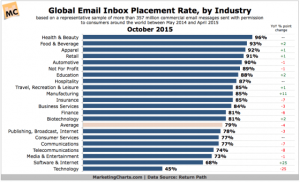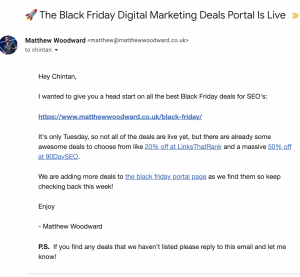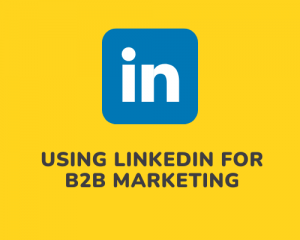— August 22, 2017

Tumisu / Pixabay
By the year 2025, approximately 75% of the global workforce will be comprised of millennials, according to a study conducted by Deloitte. This is a very significant measurement because it identifies who human resource managers will need to recruit and retain now and into the future. To gain a better understanding of millennials and their significance in the workforce, it is essential to review general characteristics that represent most millennials.
Millennial Characteristics
Millennials were born between the early 1980’s to the late 1990’s and currently represent about 38% of the global workforce and will soon represent a far larger amount. Millennials are technologically driven as they grew up with widespread use of the internet, cell phones, social media and more digital technology. Technology has played a significant role in how millennials have communicated throughout their lives so millennials expect constant communication through email, text and social media which many companies have catered to and embraced effectively. Millennials are resourceful and like to make use of technology to conduct research quickly and make decisions based on their findings. Millennials are less interested in repetitious tasks than previous generations as they seek to create, innovate and leave their mark wherever they go. Millennials want to feel valued in the workplace and prefer to be appropriately praised for their achievements.
Millennials have gained a reputation as job-hoppers, and the data supports the claim since approximately 60% of millennials are open to new employment opportunities according to a study conducted by Gallup. The reasoning behind that reveals that millennials place a high emphasis on the value that their careers are providing and if they feel as though they can get a better value elsewhere, they aren’t afraid to make a move. Millennials won’t budge on important considerations such as work-life balance, flexible scheduling, opportunities for career advancement, as well as competitive wage and benefits. These are important for human resource managers to consider to emphasize in their recruitment material to millennials as well as consideration when discussing employee retention efforts.
Millennial Study
During a Store Operations Management Internship that I completed with Wegmans Food Markets, I studied this topic and drew some conclusions about millennials in the workplace. By surveying a group of 66 millennials employees as well as 35 human resources representatives, my study revealed that millennials generally do enjoy working for Wegmans as the company matches all of the criteria that the millennials indicated that they seemed to want in the workplace. The millennial employees and human resource representatives both identified flexible scheduling, opportunity for advancement and wages to be the top 3 most important things for millennials in the workplace.
The human resource representatives indicated that attending career fairs, engaging with school career centers, making use of job search engines and social media for recruiting are effective ways to recruit millennials. In general, the millennial employees enjoyed working in a team, non-repetitive tasks, flexible scheduling, diversity in the workplace and eco-friendly practices. In fact, many studies have concluded that eco-friendly practices are among one of the most significant factors for millennials and that about 80% prefer to work for employers that implement eco-friendly practices. This is an area that recruiters can use to effectively market opportunities within a company that has implemented eco-friendly practices. Recruiters should focus on marketing the flexibility to learn and grow within a position or company which should attract millennials.
During my project, I created and staffed a career information booth where I was able to highlight current job openings, speak to potential applicants about why Wegmans is a great place to work and answer their questions about the application process. This helped the potential applicants to feel more comfortable throughout the job posting process. The booth was cost effective, had a simple setup and was inbound to the Wegmans brand reputation. It was also less competitive than a typical job fair booth because it was hosted within the store. I also ran a Facebook paid advertisement that reached 8,000 local millennials which contributed to a decrease in job vacancies throughout the campaign with a majority of the new employees hired being millennials.
Conclusion
With United States unemployment being as low as it has been since 2001, it has created a highly competitive job market and soon millennials will represent a majority of the workforce. In the interest of saving money and resources by effectively hiring and retaining millennials, human resource managers will need to take into consideration the preferences of the changing workforce and insure that their recruiting practices and retention efforts will be effective.
Human resource managers can start by identifying what has attracted their current employees and what would make them more satisfied with their role (as I did via an anonymous survey of the millennial employees). By using that information in a promotional function for recruitment, it will help human resource managers to recruit employees who will want to stay with the company which should help to increase retention. In addition, the comments that the employees made can later be presented when discussing how retention could be improved by making appropriate changes based on the employee recommendations.
Regarding recruitment, social media is a tool that many recruiters have effectively leveraged to attract active as well as passive job seekers for their help needs. Millennials tend to conduct research online and many prefer to view updates via social media. As a digital marketer, I would recommend LinkedIn and Facebook for increasing awareness of job vacancies. LinkedIn is well known as the most popular professional social network and provides recruiters with an incredible amount of options as they target applicants for vacancies. However, Facebook also has a relatively new job function that is more adapted toward usage for small businesses. Other popular social networks among millennials such as Instagram and Snapchat are image-driven and allow employers to visually show off their company culture. Social media marketing and recruiting should work cooperatively and should be coordinated to enhance marketing and staffing together.
In conclusion, millennials need to be met where they are and companies that can effectively leverage social media to showcase the benefits of why they are an ideal employer, will have an edge in the increasingly competitive job market.
To view the original article, click here.
Business & Finance Articles on Business 2 Community
(91)








